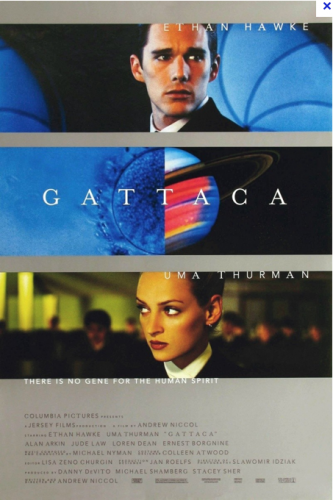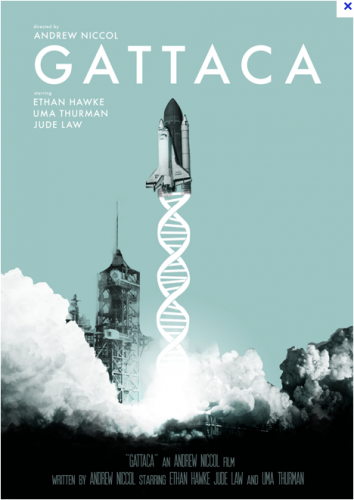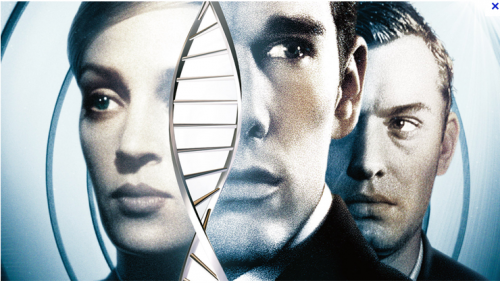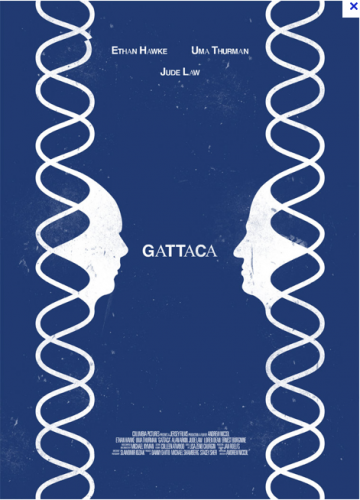Flip Flops in the Windy City: Film Score Review — Gattaca
Gattaca is a ridiculously awesome movie with a ridiculously awesome score. It’s just one of those films that is already great and lucks into having an even better score. Read on and you’ll find out why…
The Movie
Gattaca (1997) is set in “the not too distant future”, when the first generation of successfully genetically manipulated people have reached adulthood. With eugenics in full swing (in this film, it is generally considered a step in the right direction, as opposed to other ways of depicting eugenics programs in film or history), a rift has been created in society between those that were born naturally and those whose genes have been manipulated. As one doctor puts it: “Your son will still be you and your husband, just the best parts of you”. Discriminating against those with inferior genetics is technically illegal, but companies find ways around it.
The film follows Eugene Morrow, a naturally-born man with dreams of being an astronaut. But the equivalent of NASA (called Gattaca) only takes the genetically superior. Eugene pays a crippled former Olympic swimmer, Jerome, for the rights to assume his genetic identity, fooling Gattaca. We follow Eugene, having assumed Jerome’s full identity, as his launch date approaches. Things get complicated with a romantic story arc, as well as a murder at Gattaca.
The Score
The film itself is clever and nuanced in the way it depicts the not too distant future. It is a sci-fi thriller and could have been scored electronically and “futuristically”. Instead, Michael Nyman wrote jaw-droppingly beautiful orchestral music for the film. Much of the score is just wonderful string adagios. The opening credits are particularly stunning. The score features themes for all the leading characters, as well as a gorgeous main theme. There are also musical parallels drawn between plot points in several instances, such as when Jerome and his brother have a high-stakes swimming contest. That cue is my favorite. All in all, Nyman makes excellent use of the leit-motiv system.
Besides being beautiful and extremely well orchestrated, Nyman’s score is inventive as well. During one scene, Eugene and Irene go to an exclusive piano performance, attended only by those with the finest genes. It turns out that the piano player is deformed, but uses it to his advantage, as he has 6 fingers on each hand. The music he plays is known as a source cue (i.e. music that takes place in the world of the film) and can be heard by the characters. This is different from underscore, which is the music that plays during most of the film and cannot be heard by the characters. Nyman writes a piano piece in the style of Schubert. Irene tells Eugene “that piece can only be played with 12 fingers”. One can only guess if this is true, but either way, Nyman channels Schubert very well.
The Composer
Michael Nyman‘s more successful films are The Piano, Ravenous, Gattaca, and The Libertine. IMDb’s bio for Nyman:
“Michael Nyman studied piano, harpsichord and music history with Alan Bush at the Royal Academy of Music, and musicology with Thurston Dart at King’s College, London. Between 1968 and 1978 he worked as a music critic and in 1977 he founded the Campiello Band, later renamed the Michael Nyman Band. Many of his filmscores were composed for the films of Peter Greenaway. He has also written several operas, ballet music and a large number of chamber and concert pieces”.
Michael Nyman is currently working on The Road to Freedom Peak.





